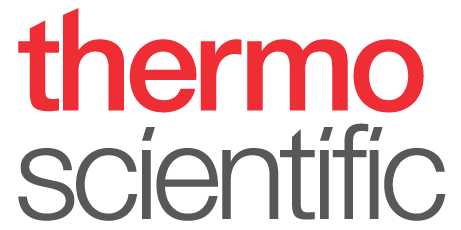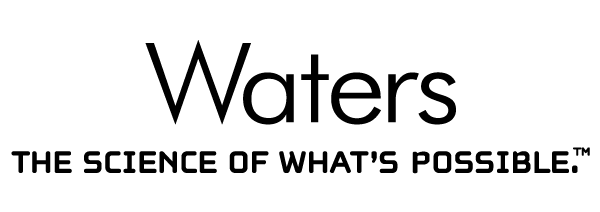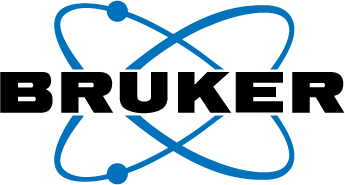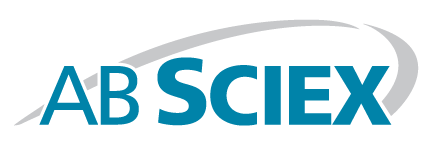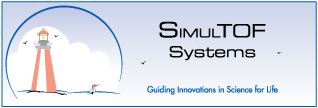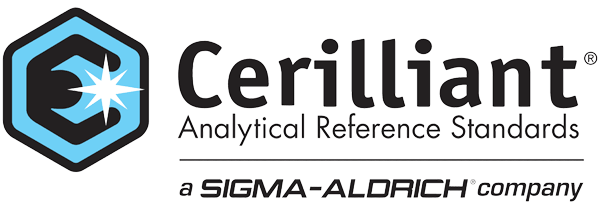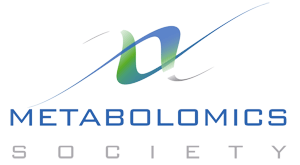MSACL 2014 USSan Diego, CA: March 1-5 |
Details
MSACL US
UNITED STATES 2014
Short Courses
RatesMSACL offers short courses that address topics related to mass spectrometry fundamentals and clinical applications at beginner (Level 1), intermediate (Level 2) and advanced (Level 3) levels.
Courses are also offered in the General Interest category (Level 0).
Short Courses cover 1 to 2 days over the weekend.
Please refer to the Level specifications below to assess courses most suited to your level of experience.
| Level 0: | General Interest. |
| Level 1: | No previous significant exposure to mass spectrometry. |
| Level 2: | Moderate understanding of mass spectrometry with hands-on experience. |
| Level 3: | Extensive hands-on experience with GC-MS and/or LC-MS/MS. |
Preparing Manuscripts for Publication: Improving Your Chances for Success
Thomas Annesley, PhD
Level: 0 (General Interest)
Length: 1 Day (Sunday)
General Toxicology
Jeffery H. Moran, PhD
Level: 1 (Beginner)
Length: 1.5 days (Saturday
Sunday)
Notes: ** All day Saturday. Ends at noon on SUN.
Introduction to Clinical Mass Spectrometry
Robert Kobelski, PhD
Level: 1 (Beginner)
Length: 2 Days (Saturday
Sunday)
How to Develop Robust Assays Faster Using Free Data Analysis Tools
Fred Lytle, PhD
Level: 2 (Intermediate)
Length: 2 Days (Saturday
Sunday)
How to Process Body Fluids for LC-MS/MS Analysis of Small Molecules
Karl-Siegfried Boos, PhD
Level: 2 (Intermediate)
Length: 1 Day (Sunday)
Understanding and Optimization of LC/MS/MS to Develop Successful Methods for Identification and Quantitation in Complex Matrices
Robert D. Voyksner, PhD
Level: 2 (Intermediate)
Length: 2 Days (Saturday
Sunday)
A Comprehensive Review of Clinical Mass Spectrometry Technology & Techniques, including Miniaturization
Jack Henion, PhD
Level: 2/3 (Intermediate/Advanced)
Length: 2 Days (Saturday
Sunday)
Development and Validation of Quantitative LC-MS/MS Assays for Use in Clinical Diagnostics
Russell Grant, PhD & Brian Rappold
Level: 3 (Advanced)
Length: 2-Days (Saturday
Sunday)
Metabolomics
Gary Siuzdak, PhD & Gary Patti, PhD
Level: 3 (Advanced)
Length: 1 Day (Sunday)
Targeted Proteomics
Andy Hoofnagle, MD, PhD, Mike MacCoss, PhD & Nathan Yates, PhD
Level: 3 (Advanced)
Length: 1.5-Days (Saturday
Sunday)
Notes: ** Starts at 1:00 PM on SAT
*Notes:
- Two day courses are NOT the same courses replicated on two separate days. They are single courses that span two days.
- Unless otherwise noted, courses are from 8:15AM - 4:30PM. Lunch and Coffee Breaks (morning and afternoon are provided).
See Registration for pricing.
Preparing Manuscripts for Publication: Improving Your Chances for Success
Rates| Instructor(s): | Thomas Annesley, PhD |
| Level: | 0 (General Interest) |
| Length: | 1 Day (Sunday) |
Prerequisites: None necessary. Introductory course.
Overview: Scientific publication is an important and necessary activity for researchers. Being a good researcher, however, does not automatically make you a good writer. Good science is the foundation of a scientific paper, but how the science is presented also strongly influences whether a paper gets accepted for publication. This session focuses on key elements of writing a scientific paper, starting with the first word put onto a page to the final printed product:
|
|
After this session, participants will be able to:
- bring greater clarity and consistency to a scientific paper;
- describe the features that distinguish papers accepted for publication;
- organize the major sections of a scientific paper; and
- create more effective tables and figures.
Instructor: Thomas Annesley, PhD
Thomas M. Annesley, Ph.D., is Professor of Clinical Chemistry at the University of Michigan. He is the Deputy Editor of the journal Clinical Chemistry, and has more than 20 years of experience in journal editing and teaching about biomedical writing.
General Toxicology
Rates| Instructor(s): | Jeffery H. Moran, PhD |
| Level: | 1 (Beginner) |
| Length: | 1.5 days (Saturday Sunday) |
| Notes: | ** All day Saturday. Ends at noon on SUN. |
Prerequisites: None
Overview: The General Toxicology short course has been developed to provide scientists background in general toxicological principles. This series of lectures will review the definition of toxicants and the basic science behind uptake/distribution and biotransformation pathways that lead to excretion. This is important for laboratories charged with developing new testing strategies for drugs and emerging agents of concern when analytical testing strategies are not readily available.
The additional half-day training will use synthetic marijuana aminoalkylindoles as a timely example to emphasize the need for this basic understanding. Aminoalkylindoles are thought to be produced in China and marketed in consumer products now being sold in the US. Humans are being exposed and injured at unprecedented rates, and clinical, forensic, and public health laboratories are now challenged with assaying these new drugs of abuse. When synthetic marijuana first emerged little was known about how these substances were metabolized, and human tests were not available. The information shared in this course reveals the process of developing liquid chromatography tandem mass spectrometry (LC-MS/MS) assays now being used to screen for these drugs.
Instructor: Jeffrey Moran, PhD
Dr. Moran received his doctorate in Toxicology from the University of Arkansas for Medical Sciences (UAMS) in 2001 and an American Chemical Society (ACS) approved Bachelor of Science degree in 1996 from Arkansas Tech University. Dr. Moran has been working in human health toxicology and environmental chemistry since 1993, and today, he is the Branch Chief for Environmental Chemistry at the Arkansas Department of Health and is Faculty in the College of Medicine at UAMS, Department of Pharmacology and Toxicology. His research focuses on delineating biotransformation pathways involved in the metabolism of a variety of drugs, environmental toxicants, endogenous molecules and xenobiotics. Currently, Dr. Moran represents one of the leaders in developing analytical approaches for synthetic cannabinoid analysis. He has authored or co-authored several peer reviewed articles featuring synthetic cannabinoids, and his 'K2' work has been featured in stories produced through mainstream media outlets, like Scientific American and the Los Angles Times.
Introduction to Clinical Mass Spectrometry
Rates| Instructor(s): | Robert Kobelski, PhD |
| Level: | 1 (Beginner) |
| Length: | 2 Days (Saturday Sunday) |
Prerequisites: None
Overview: This course is a systems approach to clinical analysis using mass spectrometry covering GC-MS, LC-MS and MALDI-TOFMS. We will discuss the critical, fundamental aspects of the science associated with separation, ionization and mass analysis as applied to common clinical analyses. Discussions of chromatographic science will include sample introduction, resolution equations and how high resolution separations are achieved in gas and liquid chromatography. Mass spectrometry discussions include the common ionization techniques, principles of mass analysis and tandem mass spectrometry.
Lead Instructor: Robert Kobelski, PhD
Bob Kobelski earned a PhD in analytical chemistry from SUNY at Buffalo in a past millennium. He has held positions at DuPont, Johnson & Johnson's Personal Product Company and Hewlett-Packard's Analytical Products Group and Inkjet Supplies Business Unit. He has been active in clinical mass spectrometry since 1997 and is currently Lead Chemist and program officer for the chemical component of the Laboratory Response Network at the Centers for Disease Control and Prevention where he is responsible for method development, training, quality assurance and control for a network of 55 emergency response laboratories.
How to Develop Robust Assays Faster Using Free Data Analysis Tools
Rates| Instructor(s): | Fred Lytle, PhD |
| Level: | 2 (Intermediate) |
| Length: | 2 Days (Saturday Sunday) |
Prerequisites: Experience with Excel-based data analysis and familiarity with basic statistical concepts.
Overview: Every analytical method development project and every method validation involves data analysis. Everyone involved in method development knows the basic, classical statistics usually applied to problems of precision, accuracy and stability. In real experiments, however, sometimes data are not well behaved. Further, in method development, factors often interact with each other in complex ways making robust method development time consuming and difficult. To develop more robust methods faster, better data analysis tools are needed.
Using free data analysis tools, and real world examples, this course will give participants a solid, understandable description of "classical" statistical methods for processing well-behaved data. We will then show where problems arise with real data such as outliers, unequal variances, etc., and how to use modern robust statistical methods for producing more reliable results. We will show how the basic ideas of regression analysis lead to powerful experimental design techniques that can improve the speed and robustness of method development.
Students will be taught how to use the free statistics oriented language "R" to easily perform calculations that are difficult or impossible to do correctly using spreadsheets.
Topics will include:
- Use of classical statistics - strengths and weaknesses
- Robust methods to improve statistical analysis
- Applications: QC sample analysis and calibration
- Analysis of Variance (ANOVA) & experimental design Data
Instructor: Fred Lytle, PhD
Fred E. Lytle received his B.S. degree in chemistry from Juniata College in 1964 and earned his Ph.D. degree in analytical chemistry at The Massachusetts Institute of Technology in 1968. He joined the faculty at Purdue University that same year, being promoted to Associate Professor in 1974, Professor in 1979, and Professor Emeritus in 2008. In May 2008 he joined the technical staff of Indigo BioSystems where he is a corporate Fellow.
Throughout his tenure at Purdue he taught a nationally-recognized graduate course on numeric and electronic methods of signal-to-noise enhancement. He is currently developing numeric and computational algorithms for data processing in pharmaceutical applications. During his tenure at Purdue he received numerous teaching awards. At the national level he has received the American Chemical Society Division of Analytical Chemistry Award in Chemical Instrumentation, and the American Chemical Society Award in Analytical Chemistry. In 2011 his teaching of numeric methods was recognized by the J. Calvin Giddings Award for Excellence in Education.
How to Process Body Fluids for LC-MS/MS Analysis of Small Molecules
Rates| Instructor(s): | Karl-Siegfried Boos, PhD |
| Level: | 2 (Intermediate) |
| Length: | 1 Day (Sunday) |
Prerequisites: General knowledge of bioanalytical laboratory techniques
Overview: The course covers:
- Integration and automation of selective clean-up of complex body fluids (e.g. whole blood, plasma, urine) using SPE and column switching (SPE-LC).
- Instrumentation, operational procedures and practical guidelines for hyphenation of SPE - LC with UV, ECD and/or MS/MS
- Properties and performance of tailor-made SPE packing materials (e.g., restricted access materials, RAM; mixed-mode polymers, MMP; molecularly imprinted polymers, MIP)
- POPLC: An attractive way and valuable tool to find the optimal LC-column in combination with on-line SPE
- MS adequate processing of body fluids by means of on-line (turbulent flow) SP-LC
- General introduction to understanding, monitoring and elimination of ion suppression / matrix effects in bioanalytical LC-MS/MS
- Multidimensional SPE for utmost sample clean-up
- Depletion of phospholipids for undisturbed MS/MS analysis
- Preanalytics and processing of body fluids (Cell-Disintegrated Blood, CDB; Dried Matrix/Blood Spots, DXS; Dried Matrix/Blood Extracts, DXE)
Instructor: Karl-Siegfried Boos
Karl-Siegfried Boos studied Biochemistry at the University of Hannover, Germany. He became involved in bioanalytical HPLC already in the late sixties. Since then one of his major research topics was on HPLC hyphenated with SPE, post-column reactors and various detectors for (trace) analysis of complex fluids. He developed tailor-made packing materials for direct injection and on-line SPE of body fluids in the fields of biological monitoring and clinical-chemistry. His research interest is also on the standardization of preanalytics for body fluids. Dr.Boos established multidimensional SPE-platforms upfront to LC-MS/MS systems and developed unique procedures to process body fluids in-line to make them directly applicable for liquid separation techniques.
In 1990 he established the Laboratory of BioSeparation at the Institute of Clinical Chemistry, Medical Center of the University of Munich, Germany. Dr. Boos is author and co-author of over 100 original publications in the fields of Biochemistry, Analytical Chemistry and Medicine. He has been invited to numerous national and international meetings as plenary or keynote lecturer as well as to present tutorials and short courses. Dr. Boos has been a member of the Editorial Advisory Boards of "Journal of Chromatography B" and "Journal of High Resolution Chromatography". From 2000 till 2010 he served as co-editor of the journal "Chromatographia".
Understanding and Optimization of LC/MS/MS to Develop Successful Methods for Identification and Quantitation in Complex Matrices
Rates| Instructor(s): | Robert D. Voyksner, PhD |
| Level: | 2 (Intermediate) |
| Length: | 2 Days (Saturday Sunday) |
Prerequisites: General knowledge of laboratory techniques associated with HPLC and mass spectrometry and some hands-on experience with running an LC/MS system.
Overview: This course is designed for the chromatographer / mass spectrometrist who want to be successful in developing methods, method optimization and solving problems using LC/MS/MS. The course covers the atmospheric pressure ionization (API) techniques of electrospray, pneumatically assisted electrospray and atmospheric pressure chemical ionization (APCI) and atmospheric pressure photo ionization (APPI) using single quadrupole, triple quadrupole, time-of-flight and ion trap mass analyzers.
Discussions of sample preparation and chromatography will target method development and optimization for the analysis of "real-world" samples by LC/MS/MS.
The course highlights the following topics with respect to optimization a method to achieve the best sensitivity, specificity and sample throughput:
- Optimization ionization in API techniques,
- understanding and minimizing matrix suppression,
- relative merits of various LC column lengths, particle sizes and column diameters for LC/MS/MS analysis,
- introduction into the interpretation of MS/MS spectra,
- important issues in LC/MS/MS quantitation, and
- optimization of an quantitative analysis.
Applications of LC/MS/MS to analyze compounds of clinical interest in biological matrices will be discussed throughout the course to emphasize the topics covered.
Instructor: Robert D. Voyksner, PhD
Dr. Robert D. Voyksner received his B.S. in Chemistry at Canisius College in 1978 and his Ph.D. at the University of North Carolina at Chapel Hill in 1982. He was employed at Research Triangle Institute (RTI) from 1983-2001 as the director of the mass spectrometry facility and has been responsible for developing extraction, separation and mass spectrometric methods for biologically and environmentally significant compounds. His work earned him the Presidents Award, the highest award within RTI. In 2001 he co-founded LCMS Limited in Raleigh, NC and has been the President of the company to date. Under his direction LCMS Limited is working on technological advancements in LC/MS, offering services to pharmaceutical, clinical and agrochemical industry for solving unique problems by LC/MS/MS and offering training in LC/MS/MS and MS/MS interpretation and on LC/MS/MS instrumentation. Dr Voyksner is also an Adjunct professor at the North Carolina a School of Vetinary Medicine and at The University of North Carolina School of Pharmacy.
Dr. Voyksner's research in mass spectrometry has resulted in over 230 publications and presentations, primarily in the area of HPLC/MS. He has served on the Board of Directors for The American Society For Mass Spectrometry (ASMS), is on the organization committee for The Montreux LC/MS Symposium and was the organizer for the 1995, 1999, 2003 and 2007 Montreux LC/MS Symposia. Dr. Voyksner has taught over 100 courses on LC/MS, CE/MS and CID interpretation during the past 10 years for ASMS, pharmaceutical companies; ISSX, PBA, HPCE and HPLC focused meetings.
A Comprehensive Review of Clinical Mass Spectrometry Technology & Techniques, including Miniaturization
Rates| Instructor(s): | Jack Henion, PhD |
| Level: | 2/3 (Intermediate/Advanced) |
| Length: | 2 Days (Saturday Sunday) |
Prerequisites: Students who sign up for this advanced course should either have five years or more of personal LC/MS/MS experience and familiarity with the scientific literature or have taken one or more introductory courses which cover atmospheric pressure ionization (API) techniques as well as the basics involved in routine LC/MS and LC/MS/MS analyses.
Overview: This two-day course presents a comprehensive overview of technology and techniques of analytical mass spectrometry and from that foundation extends into exciting recent developments.
- Sample preparation
- Topics: Types of extraction, Objectives of extraction, Prefractionation techniques, Sample types, Issues to consider, Protein precipitation, Liquid-solid extraction, Liquid-liquid extraction, Solid-phase extraction, 96-well format SPE, Mixed mode SPE, On-line SPE, Automation, Micro SPE (pipette tip-based), Ultrafiltration, Affinity techniques, Electrophoretic extraction, Quechers, SISCAPA, Dried blood spots (DBS)
- Advanced separation techniques
- Topics: HPLC, HILIC, Porous Graphite Carbon, UPLC NanoHPLC, Capillary Electrophoresis (CE), Differential Mobility Spectrometry (DMS)
- Ionization techniques for MS
- Topics: Electrospray ionization (ESI), Nano ESI, Atmospheric pressure chemical ionization (APCI), Atmospheric pressure photoionization (APPI), Matrix assisted laser desorption ionization (MALDI), LAESI, Direct analysis in real time (DART), Desorption electrospray ionization (DESI), Atmospheric sampling analysis probe (ASAP)
- To Discuss: New ionization techniques which may be used with or without on-line separation science technology such as HPLC, UPLC or capillary electrophoresis (CE). This area has evolved into ambient ionization techniques such as DESI, DART, ASAP, etc. -- examples and comparisons of the potential and pitfalls associated with these techniques will be explored.
- Mass Analyzers
- Quadrupoles, Ion traps, Time-of-Flight (TOF), Orbitraps, Hybrid mass analyzer systems, Ion mobility spectrometers, FTMS
- To Discuss: Developments and improvements in mass analyzers including linear ion traps, FTMS, time-of-flight (TOF), orbitraps, and accelerator mass spectrometry (AMS), the latter currently being applied to micro-dosing experiments by the pharmaceutical industry. Issues such as full-scan acquisition rates, high-resolution mass spectrometry (HRMS), the importance and usefulness of exact mass measurements for qualitative and quantitative analysis, and the analytical merits compared with modern SRM LC/MS experiments will be discussed with many practical examples and applications. The latter will include clinical chemistry issues as well as pharmaceutical, food safety, environmental and industrial examples.
- Imaging and profiling by MS
- Topics: MALDI, DESI, LAESI, LES
- To Discuss: The technique of MALDI and its applications to tissue imaging as well as liquid extraction surface analysis (LESA) employing nano-electrospray. Chip-based nanoscale HPLC separations coupled with the benefits of nano-electrospray with a focus on modern strategies to obtain lower detection limits with the benefits of reduced matrix suppression and more uniform analyte response.
- High resolution MS
- Topics: Fundamentals, Mass Defects, Isotopic patterns, Mass axis calibration, Types of HRMS systems, Qual/Quan Analysis, Data mining processes, Future directions
- Miniaturization in MS
- Topics: Purdue University "Mini 11", Torion, Microsaic, Advion expression
- Synergistic Integration
- To Discuss: Developing technologies are likely to be important aspects of modern mass spectrometry and its expansion to new future applications. Ion mobility spectrometry (IMS) and portable mass spectrometers could lead to point-of-care applications in due time. A relevant lecture includes an introduction to the interpretation of CID mass spectra employing a combination of MS/MS data and full-scan exact mass assignments which demonstrates the complimentary benefits of these combined data.
Instructor: Jack Henion, PhD
Jack Henion is Professor Emeritus of Toxicology at Cornell University in the Analytical Toxicology Section of the Diagnostic Laboratory within the College of Veterinary Medicine. He is also a co-founder, Chairman and CSO of Advion BioSciences (ABS), Inc., located in Ithaca, New York. Dr. Henion's work in LC/MS relates to the analysis of real-world samples common to pharmaceutical, environmental, and biochemical problems. The instructor has published extensively in the areas of conventional capillary GC/MS as well as LC/MS, SFC/MS, IC/MS, and CE/MS using atmospheric pressure ionization (API) technologies with quadrupole, ion trap, and time-of-flight mass spectrometers.
Development and Validation of Quantitative LC-MS/MS Assays for Use in Clinical Diagnostics
Rates| Instructor(s): | Russell Grant, PhD & Brian Rappold |
| Level: | 3 (Advanced) |
| Length: | 2-Days (Saturday Sunday) |
Prerequisites: The target audience should have extensive familiarity with LC-MS/MS systems.
Overview: This 2-day course will briefly introduce the key aspects of the LC-MS/MS experimental workflow and then focus on processes and experimental designs for assay development and analytical validation of assays to be employed within clinical diagnostics.
The first day will describe method development in detail, including how-to guides for initial optimization of mass spectrometry systems, chromatographic development and sample preparation schemes. Techniques and technologies for streamlining analytical performance will also be described. Transitional experiments from development to validation will be discussed in detail to stress test methodologies prior to analytical validation.
Day two will cover all details pertinent in validation of LC-MS/MS analytical workflows. Experimental designs for all aspects of validation, putative acceptance criteria and analytical solutions will be shown. Key validation criteria of selectivity, carry-over, matrix effect, accuracy, precision, linearity, stability and inter-assay correlation will be described using multiple case studies.
Instructor: Russell Grant, PhD
Dr. Grant received his PhD in chromatographic and mass spectrometric technologies from Swansea University in 1995. He continued his scientific training in various industrial settings which have included: senior scientist at GSK, principal scientist at Cohesive Technologies, Technical Director at Eli Lilly and Director of Mass Spectrometry at Esoterix Endocrinology.
Dr. Grant has pioneered the use of direct injection technologies, chromatographic systems multiplexing, utility of automation and new analytical platforms for application in bioanalytical applications. His research goals are focused upon improvements in speed, sensitivity and quality of LC-MS/MS analytical systems and assays.
Metabolomics
Rates| Instructor(s): | Gary Siuzdak, PhD & Gary Patti, PhD |
| Level: | 3 (Advanced) |
| Length: | 1 Day (Sunday) |
Prerequisites: LC/MS hands on experience.
Overview:
| In an effort to keep the short course up to date, the following new topics will be particularly emphasized in 2014:
These topics will be covered in detail and students will be given the opportunity to test related software via hands-on tutorials. |
This course is designed for the chromatographer / mass spectrometrist who wants learn about metabolomics. The course covers sample preparation, choice of ionization method and mass spectrometer, as well as data preparation and analysis, structural characterization and biomarker validation. Discussions will include the optimization of sample preparation for metabolite extraction and protein removal, as well as choosing the most appropriate ionization method and mass spectrometer.
The development of LC gradients and MS conditions will be covered. During the course there will be an emphasis on data preparation and analysis, including peak picking, alignment and retention time correction, differential profiling, and multivariate statistics including principal components analysis (PCA). The course also highlights the following topics: metabolite structural characterization using MS/MS for fragmentation data, and accurate mass measurements using FTMS. Further characterization approaches will be discussed, as well as biomarker validation and ultimately the transfer to the clinic.
Co-Instructor: Gary Siuzdak, PhD
Gary Siuzdak is Director of the Scripps Center for Metabolomics and Professor of Chemistry and Molecular Biology at The Scripps Research Institute in La Jolla, California (http://masspec.scripps.edu/). He is also Faculty Guest at Lawrence Berkeley National Laboratory and served as Vice President of the American Society for Mass Spectrometry. His research includes developing novel mass spectrometry-based approaches in metabolomics, nanostructure-based imaging, microorganism analysis, and enzyme activity assays. He has over 170 peer-reviewed publications and two books, "Mass Spectrometry for Biotechnology" and the "The Expanding Role of Mass Spectrometry in Biotechnology", 2006 Edition.
Co-Instructor: Gary Patti, PhD
Dr. Patti is a professor at Washington University School of Medicine in the Departments of Genetics, Chemistry, and Medicine. Dr. Patti's laboratory focuses on both the application and the development of metabolomic technologies, including those related to both mass spectrometry as well as nuclear magnetic resonance. Specifically, his laboratory has developed novel workflows and bioinformatic approaches to expedite the identification of metabolites during untargeted profiling. His laboratory also has a keen interest in discovering new metabolites and pathways, particularly those related to chronic pain of neuropathic origin.
Targeted Proteomics
Rates| Instructor(s): | Andy Hoofnagle, MD, PhD, Mike MacCoss, PhD & Nathan Yates, PhD |
| Level: | 3 (Advanced) |
| Length: | 1.5-Days (Saturday Sunday) |
| Notes: | ** Starts at 1:00 PM on SAT |
Prerequisites: LC/MS hands on experience.
Overview: This course will detail the development of targeted proteomics assays for use in complex matrices. We will discuss:
- differential mass spectrometric assays and their application in the discovery of novel biomarkers of disease and therapy,
- approaches to peptide and SRM/MRM transition selection and the software tools that have been developed to help facilitate this important step in a vendor neutral environment,
- our experience with several different methods for the calibration of proteomic signals in human serum and plasma,
- the different internal standards available and their use in targeted proteomics experiments,
- approaches to the immunoaffinity enrichment of proteins and peptides in complex matrices There will be case studies used throughout to help illustrate the methods and the results of each of the possible approaches.
Co-Instructor: Andy Hoofnagle, MD, PhD
Dr. Hoofnagle's laboratory focuses on the precise quantification of recognized protein biomarkers in human plasma using LC-MRM/MS. In addition, they have worked to develop novel assays for the quantification of small molecules in clinical and research settings. His laboratory also studies the role that the systemic inflammation plays in the pathophysiology of obesity, diabetes, and cardiovascular disease.
Co-Instructor: Mike MacCoss, PhD
The focus of the MacCoss laboratory is in the development and application of cutting edge mass spectrometry based technologies for the analysis of complex protein mixtures. They have developed a number of tools and methods to expedite the development of quantitative protein measurements by mass spectrometry. Dr. MacCoss' primary area of expertise is in protein biochemistry, nanoflow liquid chromatography, mass spectrometry instrumentation, and computational analysis of mass spectrometry data. The MacCoss laboratory has been actively applying these tools to important areas of biology including the basic biology of aging, protein-protein interactions, insulin signaling, measurement of protein half-life, transcriptional regulation, characterization of post-translational modifications, proteogenomics, and clinical diagnostics.
Co-Instructor: Nathan Yates, PhD


